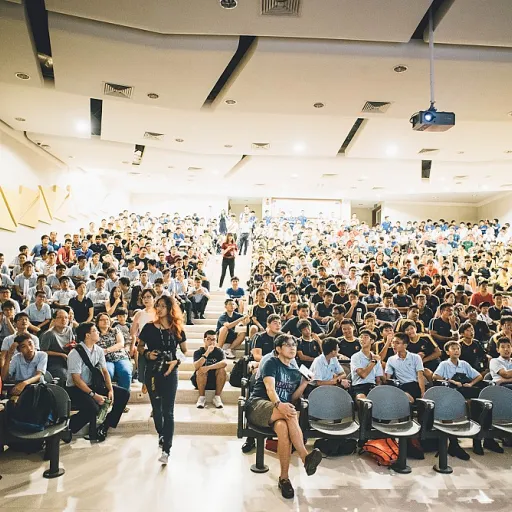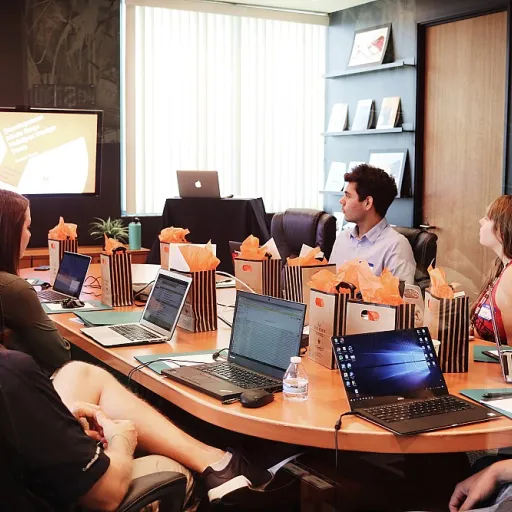
Understanding Managerial Staffing Needs
Identifying Core Staffing Requirements
Understanding the staffing needs in management requires a diligent approach to identifying the core requirements that align with business goals. At the heart of effective staffing lies the intricate balance between project management, workforce management, and employee performance. Manpower planning is a critical function of the broader human resources strategy, ensuring that the right employees with the right skills are in place. A key element is recognizing the essential skills and characteristics needed in managerial roles, which often includes leadership abilities, communication skills, strategic thinking, and the capacity for training development. Consider the business's long-term objectives and immediate needs when analyzing staffing function trends, as these will invariably shape the staffing process.Anticipating Future Workforce Demands
Successful staffing management also relies on anticipating future workforce demands. This involves leveraging comprehensive processes such as recruitment selection and effective staffing methods. The work environment must support the development of managerial skills, from project to people management. In this digitally-driven age, organizations need to integrate efficient recruitment and hiring processes that are both forward-thinking and adaptable. Consider exploring the world of talent management systems, which provide insights into how technology streamlines the selection process. Exploring Talent Management Systems These systems are pivotal to the growing emphasis on data-driven decision making, particularly in management staffing. Human resources play an integral role in fostering the right work environment, ensuring employees are equipped with the knowledge and training necessary to thrive. Aligning employee development with organizational goals ultimately enhances both employee performance and business outcomes. This sets the stage for building a more resilient and adaptable workforce in an ever-evolving business landscape.Leveraging HRIS for Talent Acquisition
Maximizing Talent Acquisition with Modern HRIS Tools
The integration of Human Resources Information Systems (HRIS) in staffing processes has transformed talent acquisition in business environments, enabling more efficient staffing management and recruitment selection. As organizations look to streamline their staffing functions, leveraging HRIS becomes crucial to meet the evolving needs of management staffing and manpower planning.
The effective staffing of managerial positions involves a thorough recruitment process, where HRIS plays a pivotal role in identifying and attracting top talent. These systems help in maintaining a comprehensive database of potential candidates, enabling businesses to seamlessly manage employee recruitment and selection.
Here are some of the ways HRIS optimizes talent acquisition for managerial staffing:
- Centralized Candidate Database: HRIS platforms allow for the consolidation of applicant data, making the selection process more efficient. This centralized system aids in tracking applicants' skills and qualifications, ensuring that the best candidates are identified and shortlisted for managerial roles.
- Automated Recruitment Processes: Automating parts of the recruitment process, such as resume screening and interview scheduling, saves time and resources. This efficiency is essential in maintaining a competitive edge in today's fast-paced business environment.
- Enhanced Job Postings: By leveraging HRIS, businesses can enhance their job postings through targeted job advertisements. These systems provide insights into where the best candidates are searching, ensuring that organizations reach the optimal talent pool.
- Data-Backed Decision Making: Using data analytics provided by HRIS, companies can make informed decisions throughout the staffing process. Analyzing trends in employee performance and job market dynamics allows for better manpower planning and resource management.
By optimizing these processes, HR departments enhance the overall selection process, contributing to the long-term success and employee development within organizations. The use of specialized tools also supports companies in crafting a robust work environment that fosters skills training and workforce development.
For those interested in further improving their recruitment strategies, a focus on enhancing the interview process is a critical component to consider. Integrating interviewer feedback systems within HRIS ensures continual improvement in the recruitment process.
Data-Driven Decision Making in Managerial Staffing
Embracing Data-Driven Expertise for Optimal Staffing
Accurate decision making is pivotal in managerial staffing, where the balance between organizational goals and individual performance is critical. By leveraging Human Resources Information Systems (HRIS), businesses can streamline the selection process, ensuring that both immediate and long-term needs are effectively met.
HRIS provides a robust platform for analyzing diverse data sets related to employee performance, skills, and project achievements. This enables management to pinpoint the right skills and experience necessary for various roles, thus enhancing the staffing function. When managers are equipped with comprehensive HR data, they can make informed recruitment and selection decisions, leading to improved workforce management.
Additionally, HRIS facilitates manpower planning by predicting future staffing needs based on organizational growth trends and market fluctuations. Organizations can thus preemptively recruit and train employees, maintaining a steady talent pipeline. This predictive capability is invaluable in sectors with seasonal demands, such as food and beverage.
Moreover, data-driven decision making through HRIS aids in optimizing the work environment by assessing current project management strategies. This insight allows for the adjustment of staffing levels, ensuring managers can respond quickly to business demands. For effective staffing, integrating HRIS with other business intelligence tools can further enhance performance metrics tracking and resource management.
Developing a robust HRIS strategy will enhance the selection process, minimize the cost of hiring mistakes, and strengthen employee retention. To explore more on this topic, particularly the role of effective performance evaluation techniques in workforce development, you can read our detailed guide on performance evaluation techniques.
Enhancing Managerial Development and Retention
Building a Robust Managerial Development Strategy
To enhance managerial development and retention effectively, Human Resources Information Systems (HRIS) play a vital role. These systems not only aid in the initial hiring process and recruitment selection but also provide significant value in the long-term development of managerial talent. By focusing on this key aspect, organizations can create a more efficient staffing management strategy. HRIS systems enable a comprehensive approach to employee performance by integrating project management and manpower planning. This aligns with effective staffing measures to ensure that business needs are met consistently. By utilizing HRIS to assess skills gaps and development needs, companies can tailor their training and development programs specifically for management staff.- Tailored Training Programs: HRIS allows for the customization of training development offerings based on individual and team assessments. This enhances both the skills and capabilities required for managerial success.
- Retention through Career Pathing: The implementation of HRIS systems facilitates the mapping out of career paths and succession planning. By visualizing potential career advancements, managers are more inclined to stay with the company, reducing turnover rates.
- Performance Tracking and Feedback: Continuous performance appraisal data, as captured by HRIS, can drive meaningful feedback discussions. This is crucial for fostering a positive work environment where managers feel valued and motivated to improve.
Challenges in Implementing HRIS for Managerial Staffing
Overcoming Obstacles in HR System Implementation
Implementing a Human Resources Information System (HRIS) for managerial staffing often presents a series of challenges. These obstacles can impact the staffing function, affecting how businesses manage their human resources effectively. Recognizing these hurdles is essential to ensure a smooth transition and successful implementation of HRIS systems in aligning staffing needs with organizational goals.
Firstly, resistance to change within the work environment can be a significant barrier. Employees, particularly management and long-term staff, may initially resist new technologies that alter traditional processes. This resistance can hinder the recruitment, selection, and training processes essential for effective staffing. Addressing these concerns through comprehensive training programs and clear communication can facilitate a smoother adaptation and acceptance.
Next, integrating HRIS with existing human resource management and project management systems can be complex. Discrepancies between current practices and new methodologies can create challenges in unifying the staffing process. Ensuring compatibility with workforce management, project management systems, and relevant business tools is crucial.
Furthermore, concerns around data security and privacy often arise when implementing new technology. Protecting sensitive employee information during recruitment selection and other staffing management processes is a priority. Companies must invest in advanced security measures to safeguard their data, ensuring compliance with legal and ethical standards to maintain trust and reliability in their HRIS solutions.
Investing in the development of adequate infrastructure and resources is also essential for successful HRIS integration. This includes dedicated teams and resources for oversight and ongoing support. Establishing a clear roadmap and resource management strategy ensures that staffing efforts are consistent and aligned with overall organizational objectives.
Finally, it's important to consider the pace of technological evolution. Keeping up with the latest trends in HR systems requires continuous employee performance and training development programs to enable staff and management to utilize HRIS tools effectively. Adapting proactively to these changes will enhance the staffing process across the business.













